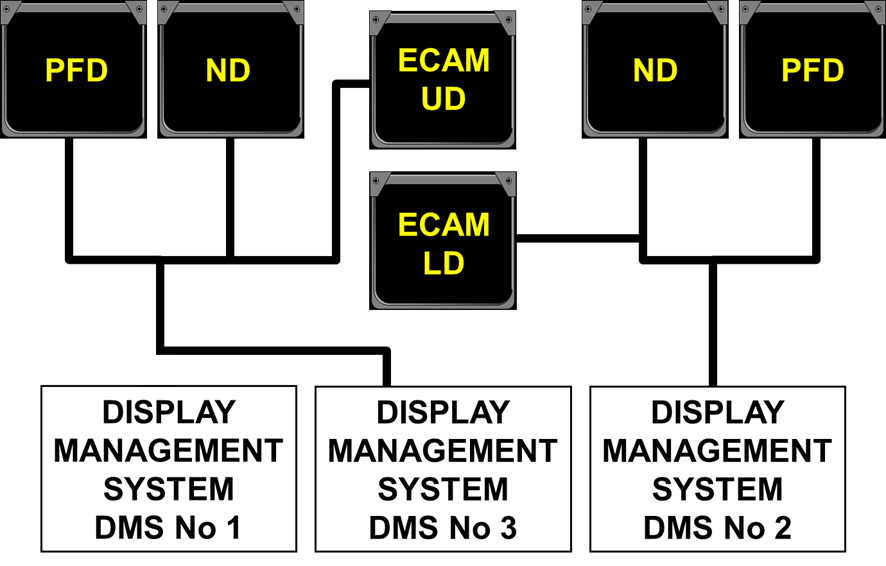Electronic Instrument system (EIS) (14.11)
The Electronic Instrument System (EIS) also allows the flight crew to configure the instrument layout by allowing manual transfer of the Primary Flight Display (PFD) with the Navigation Display (ND) and the secondary Electronic Centralised Aircraft Monitoring (ECAM) display with the ND. Figure 21 shows the switching panel from Airbus A320, with Figure 22 showing the manual transfer interchanges possible.

Airbus A320 display switching panel
Figure 21

Display manual transfer
Figure 21
As well as a manual transfer, the system will automatically transfer displays when either the PFD or the primary ECAM display fails. The PFD is automatically transferred onto the corresponding ND, with the ECAM secondary display used for the primary ECAM display. Figure 23 shows this automatic transfer.

Display automatic transfer
Figure 23
The system will also automatically transfer the primary ECAM information onto the ND if a double failure of the ECAM display system occurs. Figure 24 shows this automatic transfer during a double display failure.

Double display transfer
Figure 24
The EIS for the Airbus 320, as with other aircraft types, typically have a Display Management System , which acquire the required information from the respective aircraft systems, produce the imagery and symbologies to be displayed and control the display system. The system works using a triple channel approach which provides redundancy if any of the Display Management Systems have a failure. Figure 25 shows a block schematic of the EIS for the Airbus 320.

Airbus A320 EIS
Figure 25